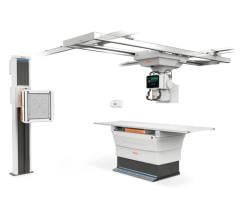April 1, 2009 - Healthcare provider attitudes toward the adoption of electronic medical record (EMR) technology at outpatient facilities and physician practices have changed significantly over the past year, according to a new perception study by market research firm KLAS.
Despite predictions of mass consolidation in the market, new ambulatory EMR vendors have proliferated, leaving physicians with a wealth of solution options in a highly competitive market. Add to that the recent passage of the American Recovery and Reinvestment Act (ARRA) and the relaxation of the Stark Law, and the market for ambulatory EMR solutions is poised for growth, with a large round of decision making right around the corner.
The KLAS perception study “Purchasing an Ambulatory EMR Solution: Who Makes the Short List?” differs from a traditional KLAS performance report in that it looks ahead at the planned purchasing decisions of outpatient organizations and which vendors they are most likely to consider. In addition to the obvious impact of the ARRA on buying decisions, the report also found that 54 percent of providers were changing or evaluating their buying strategies based on the changes to the Stark Law, compared to only minimal activity last year. The relaxation of the Stark Law allows outpatient facilities to receive funding from partner hospitals for technology and other projects.
Among the vendors named in the report, Allscripts - encompassing its Professional, Enterprise, Misys and MyWay products - was the vendor most often considered by providers in EMR buying decisions, being named 38 percent of the time. Allscripts was followed by NextGen (27 percent), eClinicalWorks (25 percent) and GE (23 percent). However, the report also found that Allscripts (Misys EMR) is the product that will most often be replaced by a new solution in the year ahead.
"Though the ambulatory EMR market is extremely crowded with vendor solutions, particularly among small physician practices, there is a select group of vendors that tends to dominate provider mindshare year after year," said Jared Peterson, KLAS executive vice president of ambulatory research and author of the new perception study. "Regardless of the size of the physician group, Allscripts, eClinicalWorks, GE and NextGen are consistently mentioned by providers considering an EMR implementation.
"The most recent entrant into that group, eClinicalWorks, is one of the few vendors that has been able to take an EMR that is proven in the small physician practice space and successfully adapt it for large physician groups," Peterson said. "NextGen has also made this transition, as has GE. Greenway is starting to gain more consideration in the larger end of the market, but has yet to gain significant mindshare there."
Another factor affecting provider buying patterns is the rise of remote-hosted solutions, which shift the burden of IT management back to the vendor or to a contracted third-party application service provider (ASP). The study found that 42 percent of providers would purchase an ASP or remote-hosted EMR, while a further 22 percent might consider such an arrangement. Both Cerner and eClinicalWorks have seen significant recent adoption of their hosted offerings.
For more information: www.KLASresearch.com


 June 28, 2024
June 28, 2024 








